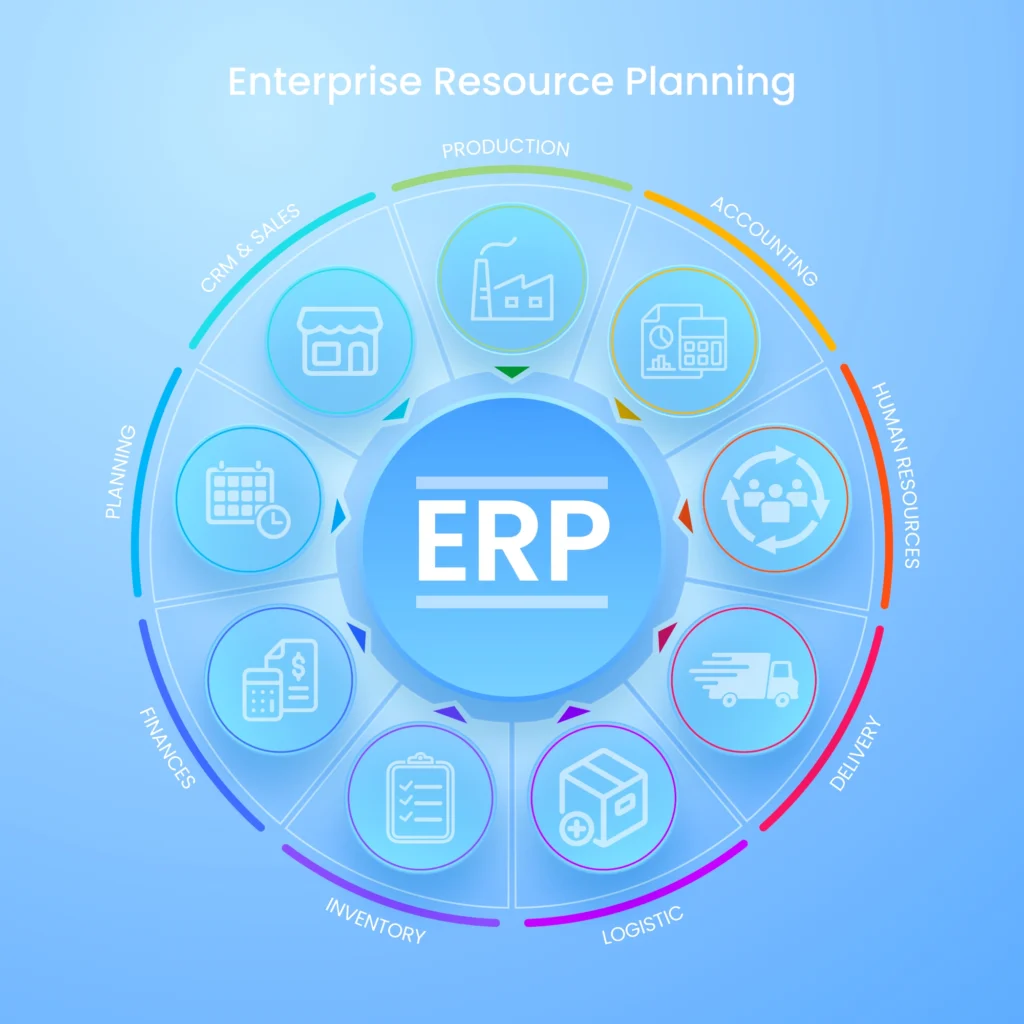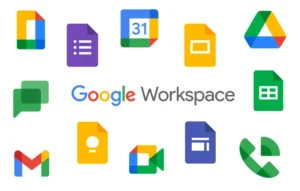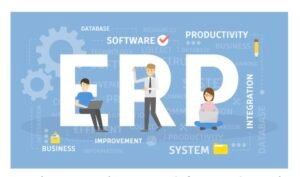Enterprise Resource Planning (ERP) is becoming an essential tool in the construction business for managing numerous requirements and changes in the market. The use of ERP systems in construction occurs as the construction industry shifts from manual, ineffective, and prone-to-error techniques to using technological improvements to better manage development, devices, and employees. Construction industries can use ERP software for construction to gather insights, streamline procedures, and boost efficiency, dealing with specific industries’ challenges like managing projects, activities minimization, optimal utilization of resources, and budget monitoring.
What Is ERP in the Construction Industry?
The construction sector is usually slow to adopt new technology, but ERP systems are especially well suited to the construction industry since it is a fractured system that incorporates numerous aspects, teams, and processes. ERP has increased in favor in construction because it integrates different parts into a single system, which improves CVR (cost value reconciliation) and reduces rework in construction operations. Construction companies range from tiny small subcontractors to major enterprise contractors, and ERP solutions are as diverse. The benefits of construction ERP are similar throughout all sizes of construction organizations, but selecting and deploying the correct ERP brings numerous hurdles.

Why Do Construction Businesses Need ERP Software?
Here are numerous advantages businesses get from choosing construction ERP software:
Streamlined business processes
Every day, contractors handle a variety of operations. The larger number of companies have even more processes to manage, and they frequently work on multiple projects at the same time. Project management becomes more difficult, contact becomes less regular, and data becomes out of time in a sector with narrow margins. ERP for construction can reduce the load on companies by integrating all processes into a single solution. It not only reduces time and administrative costs but also allows for better choice-making by depending on one single point of truth. The departments are more closely oriented, interaction and information quality increase, and business processes become more effective. Project management and remaining profitable have become more of a challenge.
Up-to-date reports and revenue forecasting
Most construction companies work on a contract agreement with their clients. In most cases, the initial stage in the procedure is to submit a bid with expected costs. Bids are often assessed and a decision is made based on a variety of considerations, most notably the projected costs proposed. Using construction ERP systems such as 4PS Structure, you can choose reliable data and an objective view of supplies, labor, machine allocations, project length, and so on, ensuring that actual costs do not diverge from predicted expenses. Furthermore, with the integrated one-stop solution, executives can simply run the PowerBI tool reports and monitor essential data dashboards to find possible threats and possibilities throughout the project lifecycle. This ensures that you always have complete and current visibility.
Informed decision making
ERP software for the construction industry is a key tool to use when making essential financial decisions. Decision-making based on information is required nowadays to detect warning indicators early, analyze the issue, choose the best course of action, and implement corrective steps. ERP for construction provides effective insights into your data. The dashboards are easily accessible, allowing you to stay on top of the project’s expenses and margins while also identifying potential hazards along with possibilities early on. You can delve into the figures in as much depth as you desire so that you can address any areas of concern quickly.
Improved planning and project management
Every constructing phase comprises a variety of operations, including material placing an order, planning of resources, and infrastructure allocation. All of these must occur at the appropriate moment, with minimal waste and downtime, for the project to develop efficiently. If something goes wrong during the construction enterprise resource planning process, the project is subject to delays and expense overruns, which might be fatal for the organization. ERP software for construction allows you to track, save, and analyze data related to orders, employees, and other factors. This is critical for avoiding paying for plants that you may not be utilizing, for example, and can result in significant long-term savings.
Integrated solution
Due to the industry’s complexities and the large number of workers, suppliers, vendors, and other stakeholders engaged in the building process, problems can go undetected in a fast-paced enterprise with a lot of moving pieces. These issues are frequently discovered after the work has been completed and monetary harm already has been incurred.
By installing ERP software for the construction industry you will be able to operate your business as well as several apps, procedures, and personnel from one system in real-time. Therefore, by digitizing most operations to some degree, the administrative workload can be decreased, freeing up more time to focus on creating strong client connections, boosting revenue, and managing resources.

Consider Factors Before Choose Construction ERP Software
Here are some points that you should need before choosing the ERP system in construction:
- Scope and requirements
- Appoint project team
- Design phase
- Development phase
- Data migration
- System testing
- Go live
- Training users
- Business as usual
Bottom Line
Finally, a few construction ERP systems provide features that may help you streamline the process of dealing with waste from building projects. For instance, certain software includes computerized forms for documenting garbage disposal actions. The data is then automatically directed to the relevant department or contract for billing or monitoring. By streamlining such procedures, you may save time and ensure that critical data is not lost or ignored.




